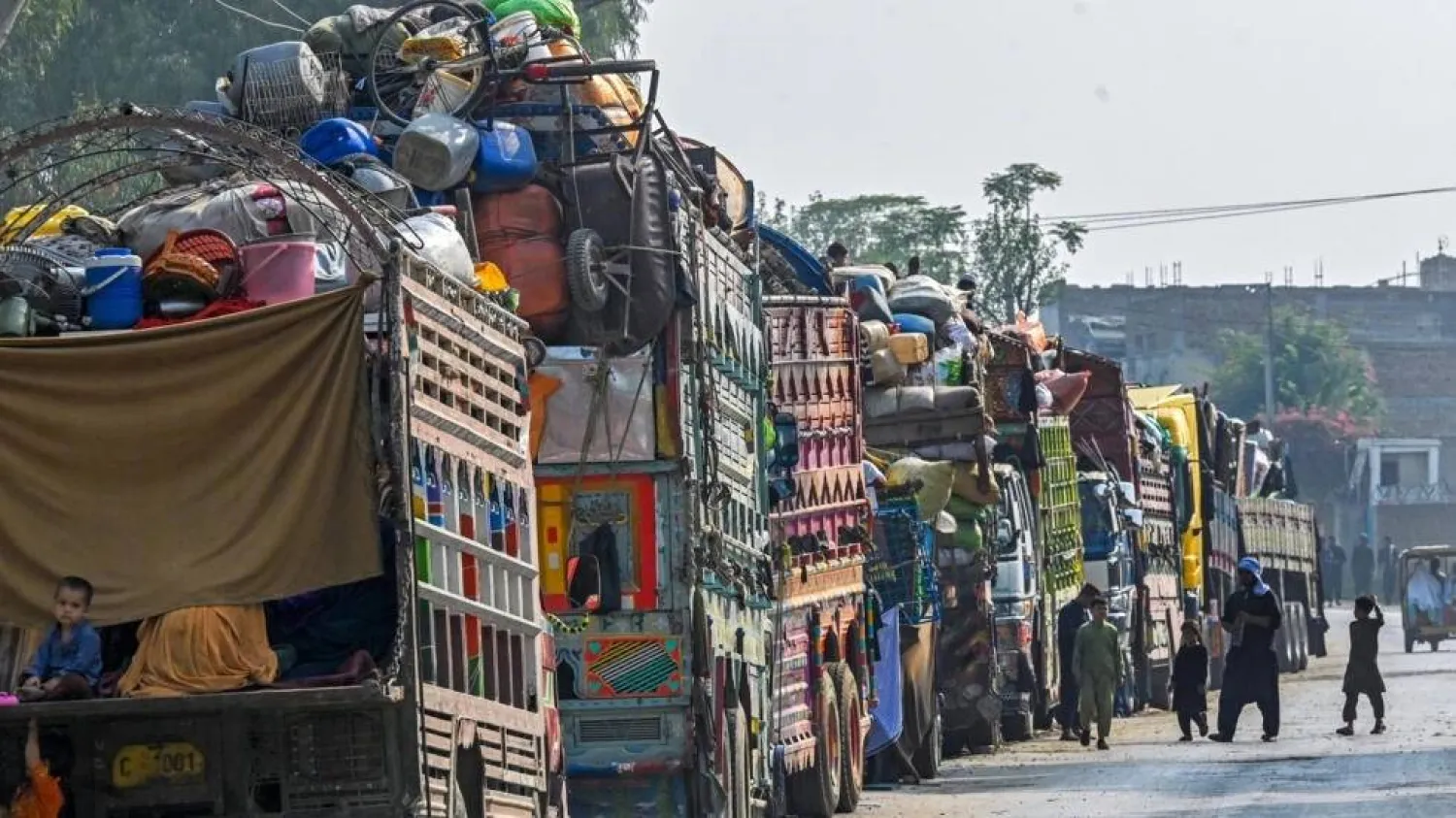As the number of refugees soars worldwide, the United Nations is appealing for countries to support displaced people at a global summit this week with the aim of showing that "change is possible".
The UN is convening the Global Refugee Forum in Geneva with thousands due to participate, including heads of government and state, in a search for concrete responses to record displacements, AFP said on Tuesday.
The number of people displaced worldwide passed 114 million by the end of September, an all-time high.
And with conflicts raging in Gaza and elsewhere forcing ever more people to flee their homes, that number has surely soared further.
UN refugee chief Filippo Grandi said the devastating war in Gaza that exploded after Hamas militants carried out their unprecedented attacks on October 7 would surely be raised during the forum.
Just over two months ago, Hamas militants killed around 1,200 people inside Israel and kidnapped around 240 people -- 137 of whom remain in Gaza, Israeli officials say.
In response, Israel's relentless bombing campaign and ground offensive have killed more than 18,000 people in Gaza, according to Hamas authorities.
The fighting has caused 1.9 million of the Palestinian territory's 2.4 million inhabitants to be displaced.
'Catastrophic'
"I hope that there will not be a regional exodus of Palestinians," Grandi told AFP in an interview last week, saying that "it is very, very important to address (the humanitarian crisis) to prevent an exodus that would be really catastrophic".
But while the Israel-Hamas war will be discussed at the forum, he said the second edition of an event destined to be held every four years will mainly focus on surging displacements around the globe.
From Russia's war in Ukraine to the raging civil war in Sudan and a humanitarian crisis in Afghanistan, conflicts and crises had fuelled record displacement even before the Gaza war erupted.
Among the 114 million displaced people, nearly 36.5 million have fled across borders and are living as refugees, according to UNHCR -- a number that has doubled in the past seven years.
Iran and Türkiye were the countries hosting the most refugees by the middle of 2023, with 3.4 million each, followed by Germany and Colombia, each hosting 2.5 million.
Global leaders at the forum need to put in place long-term policy and practical arrangements for burden and responsibility-sharing, including providing financial and technical support, UNHCR said.
This year's event is being co-convened by five countries: Colombia, France, Japan, Jordan and Uganda.
'Political manipulation'
More than 4,200 participants are expected, including more than 300 refugees, though UNHCR has revealed little about the high-level participants.
The agency said the event would provide an opportunity to "show that change is possible, that there is a path from despair to hope and from hope to action".
"Human mobility nowadays has reached very high levels," Grandi said, urging leaders and politicians to refrain from populist anti-migrant rhetoric and to instead seek positive solutions.
"To say, for example, 'we build a wall, we push them back'... does not solve the problem," he said. "People will keep coming."
Grandi also denounced a "political manipulation" by politicians in Europe especially who seek to boost their popularity by attacking migrants.
"They manipulate, they create a fear... They create a hostility in order to gain votes," he said.
Grandi said that Europe had always been a role model in the way it provides protection to refugees, and that he hoped it would remain a good example.
Bad examples from Europe, he warned, could be followed "by countries which host many more refugees, and then it would really be catastrophic".
Grandi has repeatedly criticized Britain's efforts to send asylum seekers to Rwanda, cautioning that "abandoning the responsibility to take up the process of determining asylum, it goes against the refugee convention".
The British government announced a new bill last week after Supreme Court judges ruled in November that the deportation plan was illegal, saying that Rwanda was not a safe country.
'From Despair to Hope': UN Urges Leaders to Support Refugees

The number of people displaced worldwide passed 114 million by the end of September, an all-time high. Abdul MAJEED / AFP

'From Despair to Hope': UN Urges Leaders to Support Refugees

The number of people displaced worldwide passed 114 million by the end of September, an all-time high. Abdul MAJEED / AFP
لم تشترك بعد
انشئ حساباً خاصاً بك لتحصل على أخبار مخصصة لك ولتتمتع بخاصية حفظ المقالات وتتلقى نشراتنا البريدية المتنوعة







